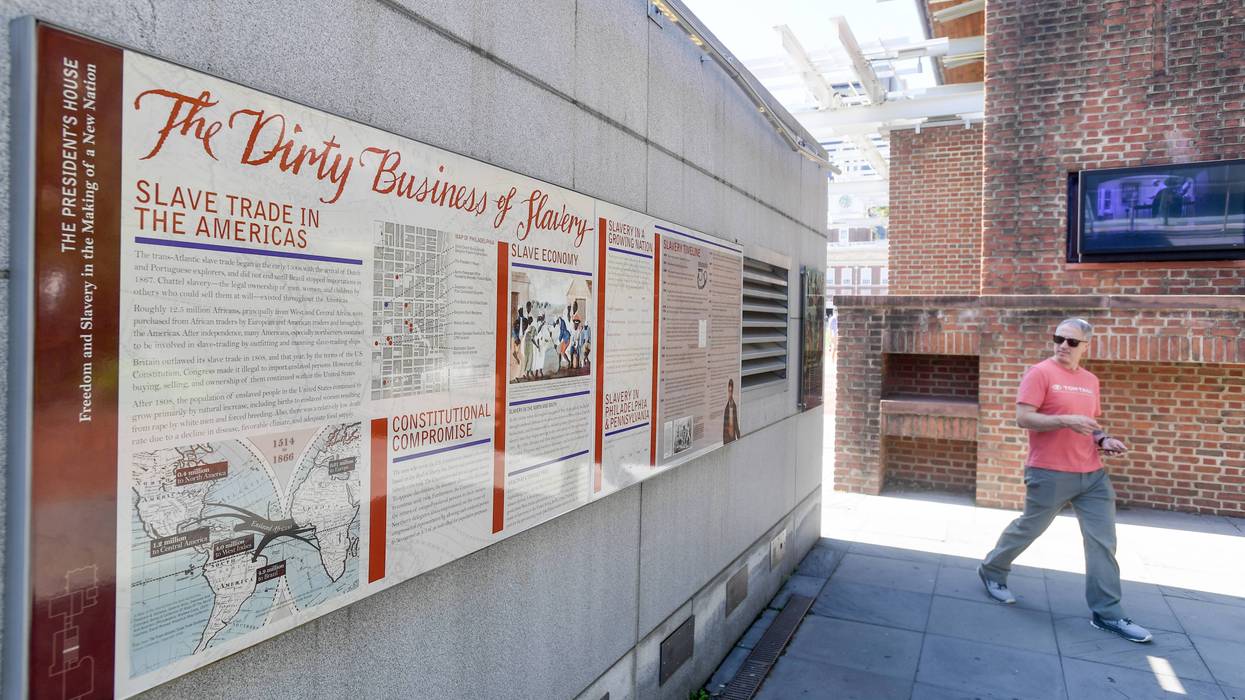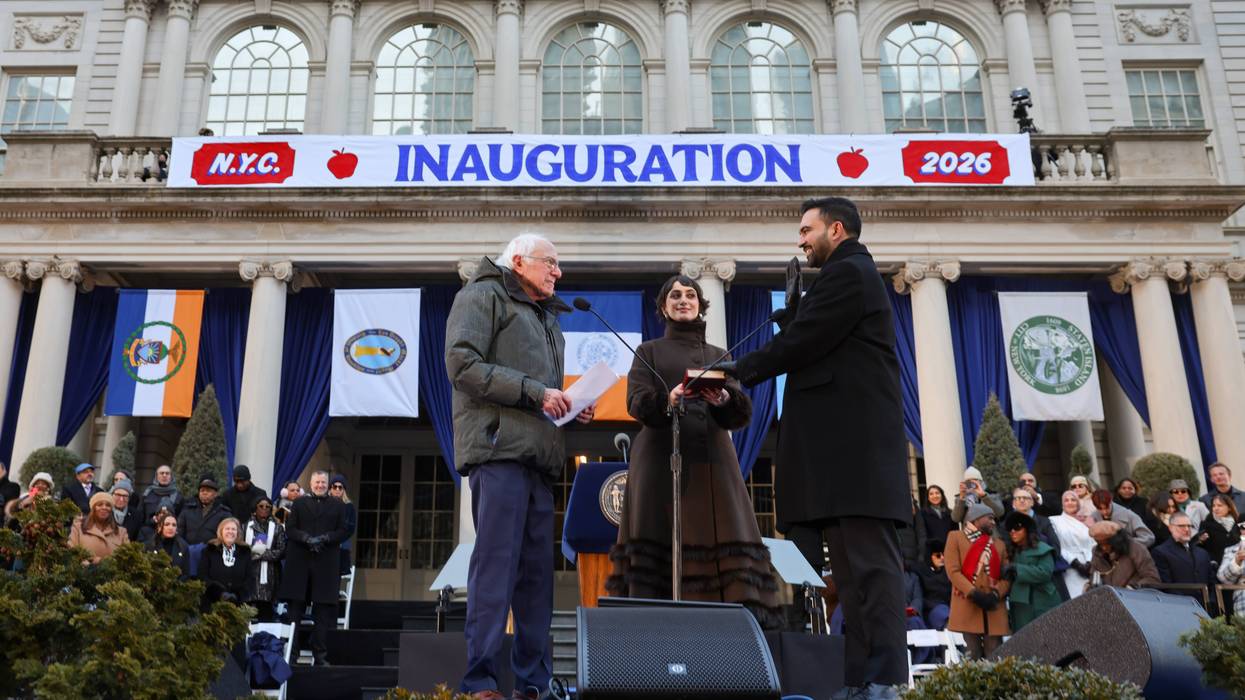The headlines captured the surface: a 25-minute inaugural address, roughly 4,000 spectators, a private swearing in just after midnight at the Old City Hall subway station, appearances by Rep. Alexandria Ocasio-Cortez (D-N.Y.) and Sen. Bernie Sanders (I-Vt.). But the moment ran far deeper. Mamdani’s inauguration was not only a municipal milestone; it was the latest chapter in a debate as old as the republic itself: where Muslims belong in the American story—and whether they ever truly have.
That question stretches back to July 30, 1788, when North Carolina ratified the Constitution. Anti-federalist William Lancaster warned that by rejecting religious tests for office, the new nation might allow Muslims to govern. “Papists may occupy that chair,” he cautioned, “and Mahometans may take it. I see nothing against it.” A warning, then. A prophecy, now.
When Mamdani declared, “New York belongs to all who live in it,” he answered a question first posed in fear in 1788, tested in war, dramatized by Muhammad Ali, and deferred for generations.
There were no Muslim candidates in 1788. But there were Muslims in America—thousands of enslaved Africans whose presence exposed the republic’s deepest contradiction. Between 5 and 20% of enslaved Africans were Muslim, many literate in Arabic, bearing names like Fatima, Ali, Hassan, and Said. Their faith was violently suppressed, yet fragments endured—in memory, language, and resistance.
Even the founding generation reflected this tension. Thomas Jefferson studied the Quran and treated Islam as a serious intellectual tradition, even as he owned enslaved Muslims. Islam existed in theory, in human reality, and yet was denied civic recognition.
That tension carried forward into the nation’s greatest moral reckoning: the Civil War.
Muslims fought for the Union. Mohammed Kahn enlisted in the 43rd New York Infantry. Nicholas Said—born Mohammed Ali ben Said in Nigeria, raised Muslim, later converted to Christianity—served as a sergeant in the 55th Massachusetts Colored Regiment and as a Union clerk. Captain Moses Osman held a high-ranking post in the 104th Illinois Infantry. Union rosters show names like Ali, Hassan, and Said, hinting at a wider Muslim presence than history often acknowledges.
Yet rifles were not the only weapons. Islam entered the moral imagination through words and witness. Sen. Charles Sumner, nearly beaten on the Senate floor, quoted the Quran to condemn slavery. Ayuba Suleiman Diallo—Job ben Solomon—had already unsettled transatlantic assumptions through literacy, eloquence, and dignity. His story endured into the Civil War, republished in 1864 to reinforce the war’s moral purpose. Overseas, Hussein Pasha of Tunisia urged the US to abolish slavery “in the name of humanity,” showing Muslim advocacy was part of a global ethical conversation.
Muslims remained largely invisible in America’s public self-understanding—until the 20th century produced a figure too large to ignore.
Muhammad Ali, still the most recognizable man on Earth decades after his gold medal at the 1960 Rome Olympics, transformed boxing and American consciousness alike. He was named “Athlete of the Century” by Sports Illustrated, GQ, and the BBC; “Kentuckian of the Century” by his home state; and became a global icon through speed, grace, and audacious charm.
Ali’s significance extended far beyond the ring. By insisting on the name Muhammad Ali instead of Cassius Clay, he forced America to confront the legacy of slavery embedded in naming itself. His embrace of Islam was unapologetic and public. His refusal to be drafted into the Vietnam War cost him his title and livelihood, yet anticipated the anti-war movement. His fights in Kinshasa, Manila, and Kuala Lumpur shifted attention from superpower dominance toward global conscience.
Ali’s humanitarian work was relentless: delivering over 232 million meals, medical supplies to children in Jakarta, orphans in Liberia, street children in Morocco. At home, he visited soup kitchens, hospitals, advocated for children’s protections, and taught tolerance in schools through his book Healing. For this, he was honored as a United Nations Messenger of Peace, cited by Amnesty International, and recognized by President Jimmy Carter as “Mr. International Friendship.”
Ali showed the nation something fundamental: that Islam is American. That Muslims have always belonged to the moral and civic fabric of this country. That a nation built on life, liberty, and the pursuit of happiness, on religious tolerance, on care for the poor, is naturally aligned with Islam. Mamdani is American not in spite of his faith, but because Islam is American.
It is against this long arc—from slavery to abolition, civil rights, global conscience, and the moral courage of Muhammad Ali—that Zohran Mamdani’s inauguration comes into focus.
Mamdani’s life traces modern routes of migration and belonging. Born in Kampala, Uganda to parents with roots in South Asia, he was raised in New York City. Yet his rise fulfills an older constitutional promise. In his inaugural address, he thanked his parents—“Mama and Baba”—acknowledged family “from Kampala to Delhi,” and recalled taking his oath of American citizenship on Pearl Street.
When Mamdani declared, “New York belongs to all who live in it,” he answered a question first posed in fear in 1788, tested in war, dramatized by Muhammad Ali, and deferred for generations. He named mosques alongside churches, synagogues, temples, gurdwaras, and mandirs, making visible what history had long rendered partial. When he spoke of halal cart vendors, Palestinian New Yorkers, Black homeowners, and immigrant families bound together by labor and hope, he articulated a civic vision rooted in lived American reality.
Notably, Mamdani did not frame his Muslim identity as something to defend. It simply existed. “Where else,” he asked, “could a Muslim kid like me grow up eating bagels and lox every Sunday?” Hybridity was not an exception. It was inheritance.
Yet it is equally important to recognize that Mamdani’s historic victory does not make him infallible, nor should it. The fact that he is the first Muslim mayor of New York City is not a personal achievement alone—it reflects the barriers that Muslims, like many others, have historically faced in participating fully in American democracy. Discrimination, racial and religious bias, and systemic obstacles made this moment possible only now, not because of any failing on his part. He will, like all mayors before him, make mistakes. He will face limits, criticism, and flaws—because he is human. To hold him to an impossible standard would be to misunderstand both history and democracy.
There is, too, something unmistakably American about Mamdani’s politics. By invoking La Guardia, Dinkins, and de Blasio; by embracing democratic socialism without apology; by grounding his agenda in labor, affordability, and collective responsibility, he situates himself firmly in an American tradition—one that echoes the abolitionists, the New Deal, and the moral courage of Ali.
And as Malcolm X reminds us, this is the guiding principle for American civic life: “I believe in the brotherhood of man, all men, but I don’t believe in forcing anyone to accept it.”
This is what makes the moment historic. Not that a Muslim has finally entered American politics, but that an old constitutional anxiety—once voiced as a warning—has become an ordinary fact of civic life. Islam, Mamdani, and the ideals of this nation converge in a single, undeniable truth: America is not a Christian nation, nor a nation for whites, nor a nation for the rich alone. It is a nation built on principles shared by all who live in it, and Islam has always been part of that inheritance.
The work, as Mamdani said, has only just begun. But the story his inauguration tells—that Muslims were enslaved at the nation’s birth, debated at its founding, fought in its wars, shaped its abolitionist conscience, transformed its civil rights culture, and now govern its greatest city—is no longer hypothetical.
It stands, unmistakably, on the steps of City Hall.




